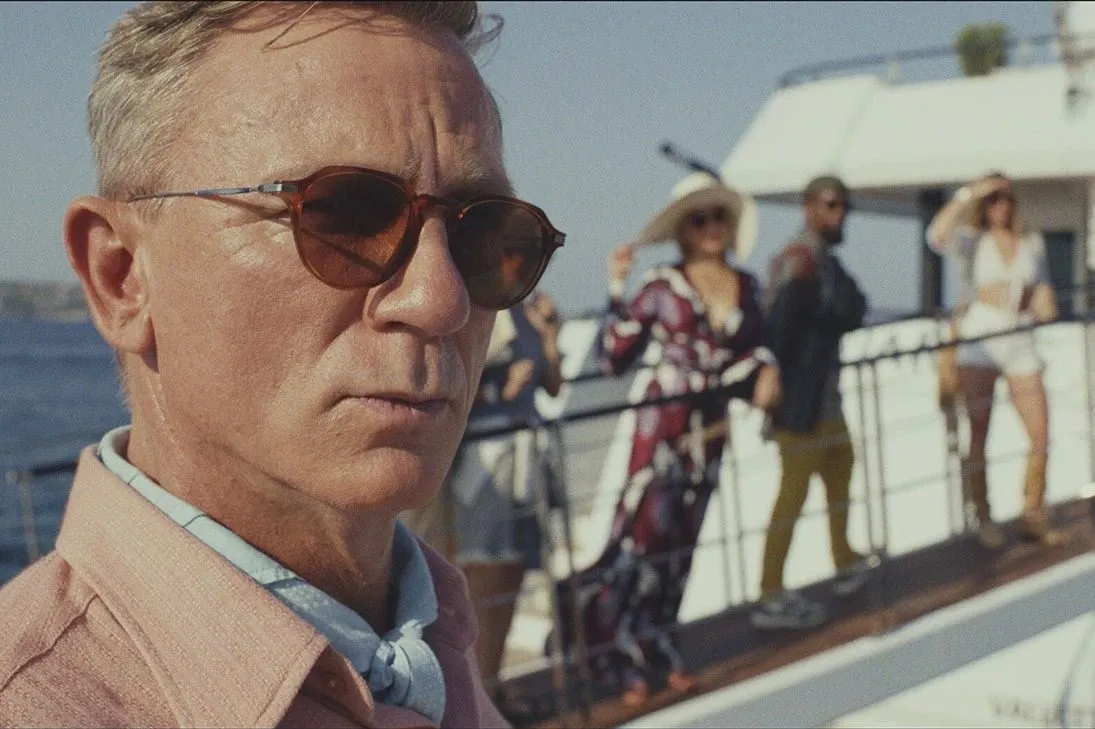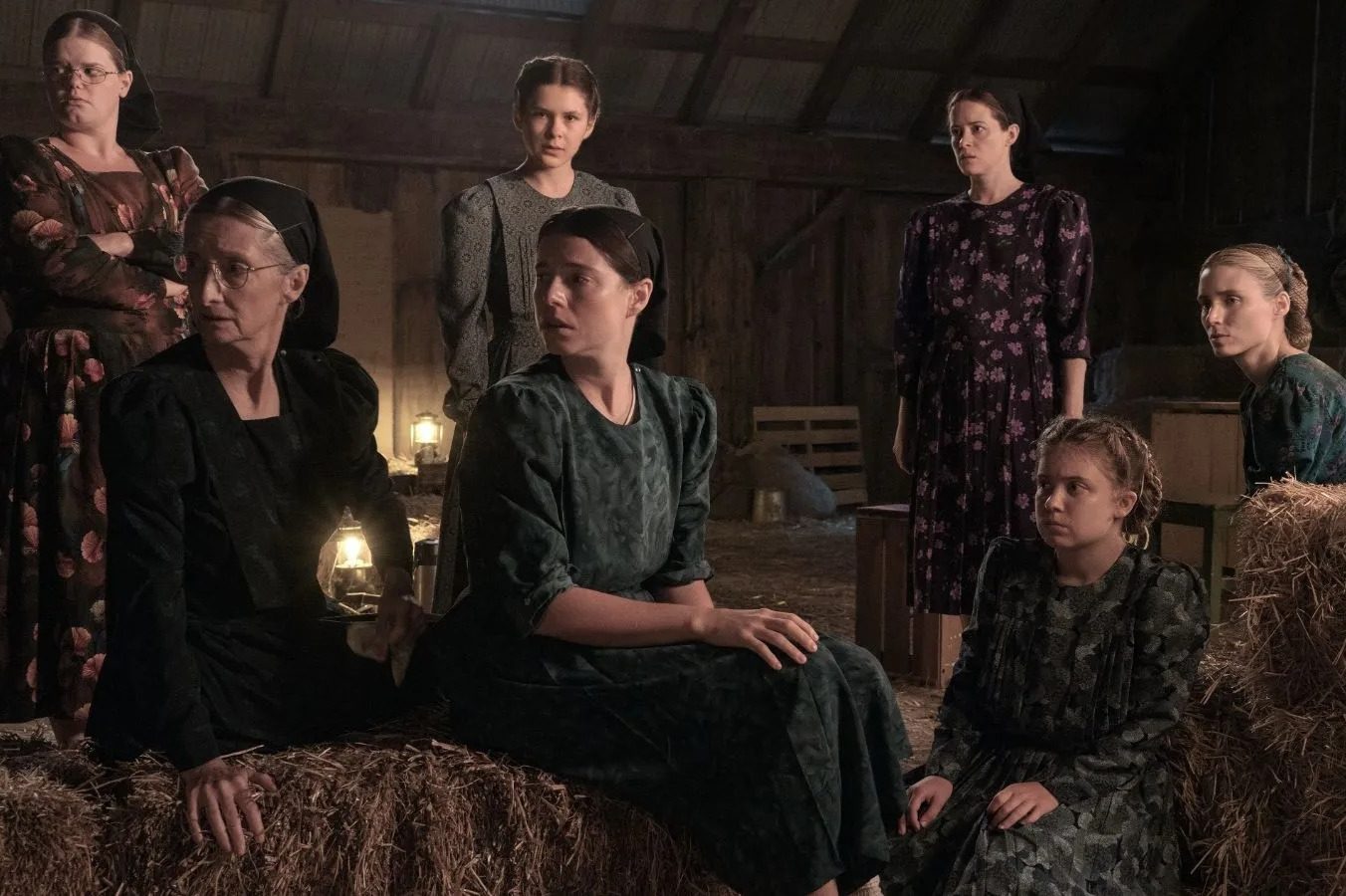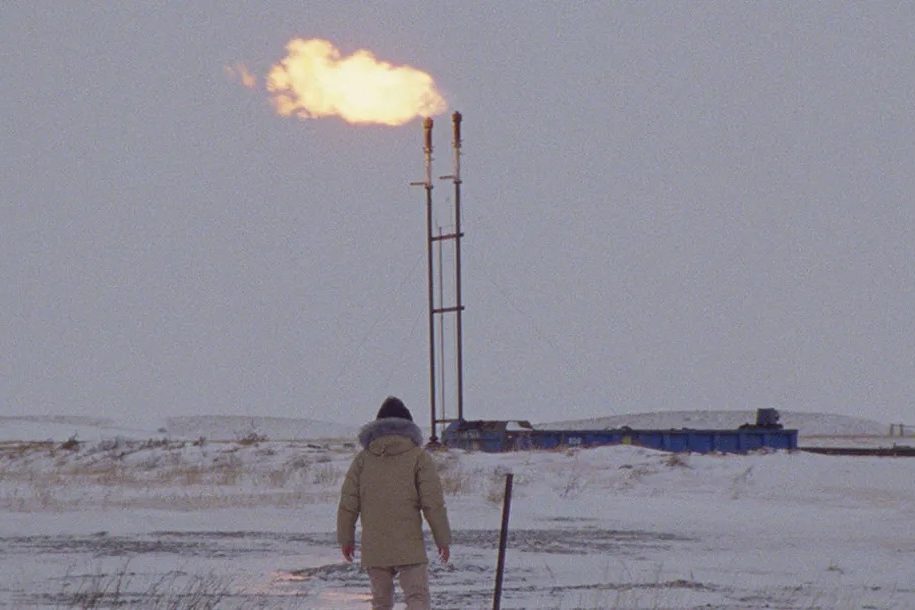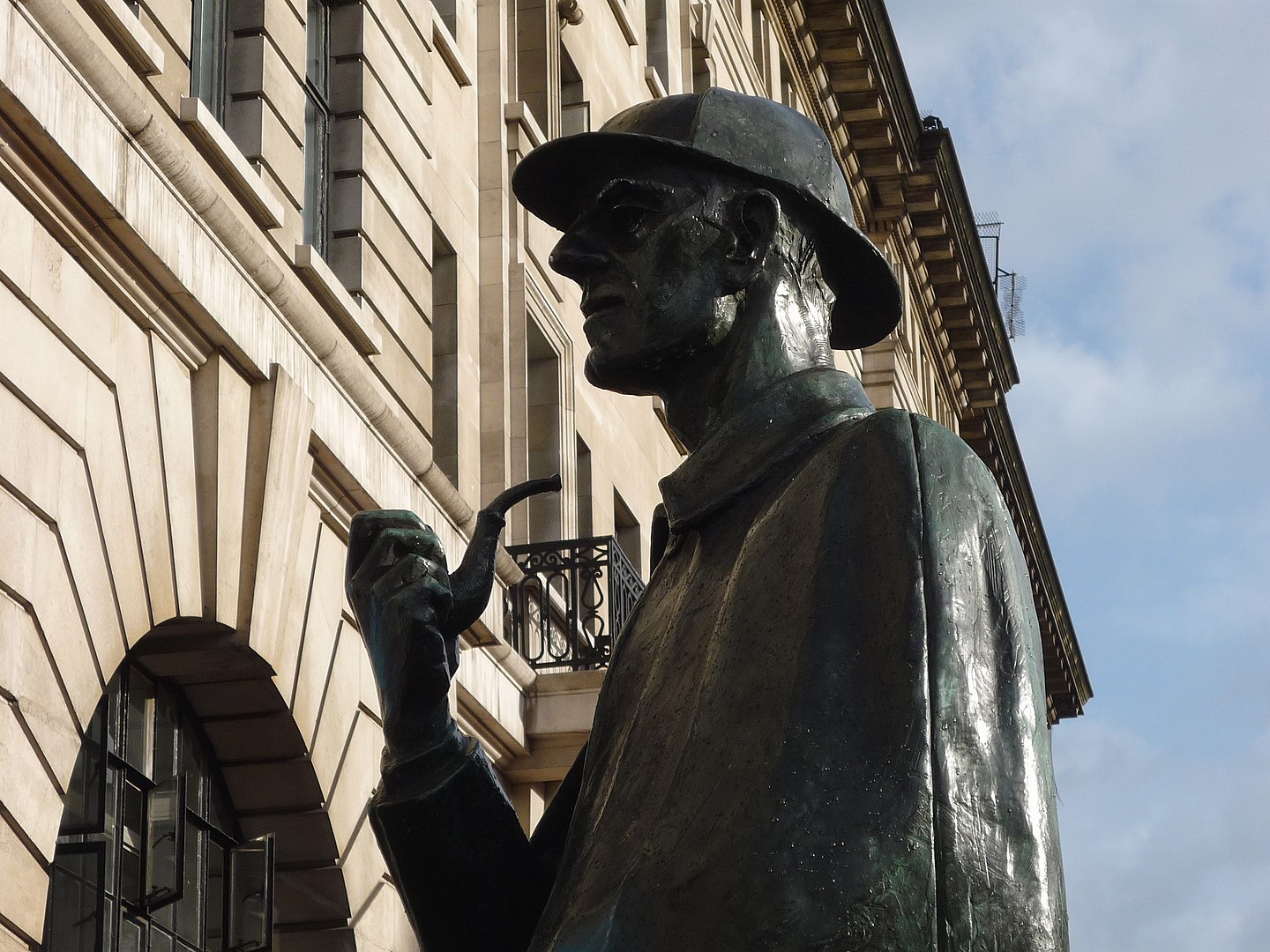Rian Johnson’s crowd-pleasing whodunit Knives Out premiered at the Toronto International Film Festival in 2019, its last full-fledged iteration before going online in 2020 and half-returning in a truncated capacity in 2021. Everyone’s back this year, and so is this unlikely fledgling franchise, taking to the high seas and an exotic Grecian locale for the sequel Glass Onion. (Incidentally, a Knives Out has proven a useful unit of measurement, as in “We’ve now been living with this godforsaken coronavirus for one entire Knives Out.”) The original was steeped in its place and time, the place being America and the time being the Trump era; national frictions crackled in a clash between a well-meaning young immigrant and the moneyed elites willing to sink to any depths so long as they hold on to their supremacy in the societal pecking order. Much has transpired since then.
We rejoin gumshoe extraordinaire Benoit Blanc (Daniel Craig, as fun and fancy-free here as he was dour and morose during his tour of duty as James Bond) in the spring of 2020, right in the thick of quarantine. As the opening minutes blow through a succinct intro to each of the characters soon to be embroiled in another murder most foul, little scraps of period dressing make themselves known in the margins — an offhanded line about the insanity of improvised homeschooling, a thin mesh mask signifying that its wearer is clueless and inconsiderate. While the pandemic-specific flourishes are kept to the first few scenes, written away with a miracle vaccine available only to the one percent’s one percent, they’re symptomatic of a tendency that runs through the entirety of the script. Johnson’s a plugged-in sort of guy, well aware of the daily brouhahas raised on Twitter by the terminally online. In Knives Out, this attunement to the moment bolstered the story with tucked-away bits of detail. The second time around, these nods to the sociopolitical climate are the entrée, actively courting an approval that its predecessor coaxed somewhat less effortfully.
For starters, the bad guy is pretty much Elon Musk, one of the primary villains to discourse-conversant left-leaning types. Miles Bron (Edward Norton) is a tech billionaire obsessed with disruption theory, having upended the market on automobiles, rockets, and soon, renewable energy. He’s nowhere near as discomfiting or odd as his clear inspiration, but in one of the sharper expressions of Johnson’s zeitgeisty contempt, the script recognizes that his image as a guru-visionary is a smokescreen intended to cloud the obvious fact that this man is deeply stupid. He assembles the lineup of suspects by reconvening a group of his old friends for their annual weekend of fun and games: Goopy lifestyle fraud Birdie (Kate Hudson, co-founder of athleisure line Fabletics) risked cancellation with Halloween photos as a blackface Beyoncé; men’s rights vlogger Duke (Dave Bautista) is like if Jordan Peterson’s body matched his ideology; soccer mom politico Claire (Kathryn Hahn) is about to make some heavy-duty ethical concessions in her campaign for the Senate; scientist Lionel (Leslie Odom Jr.) works for Bron, and as the most thinly sketched character, gets the least to do.
The biggest question mark of the bunch is Andi (Janelle Monáe), estranged and bitter and nonetheless present, her decision to show up the first stumper in an admirably hard-to-predict investigation. As the only one of them with any semblance of moral fiber, she’s been designated for the role previously occupied by Ana de Armas. Where her Marta was the perfect counterpoint to Benoit in her naïveté and aversion to high-stress situations, however, Andi strains credulity as an average gal transformed apropos of nothing into a badass avenging angel. She channels the burn-it-all-down sentiments rampant among those fed up with with the ruling class, albeit in a way that foregrounds a staler go-off-queen attitude doubly glaring in its application to a woman of color.
Whatever our feelings about Johnson’s tonal handle on wokeness, there’s no arguing his mastery as a narrative craftsman. He clearly came at Netflix’s money-truck deal as an opportunity to outdo himself on every front, the stakes now raised from one family’s fortune to the fate of the entire planet. And the deep pockets of his streaming benefactor are evident in a grand finale that goes for muscular Michael Bay grandeur where the first film contented itself with homespun cunning. The beguiling knots of intel have only been tied tighter, the rhythm of its withholding and divulging thrown off by red herrings, revelatory flashbacks and false starts. Johnson also has the visual know-how to eke out every last iota of suspense through cinematographer Steve Yedlin’s camerawork, staging a critical chase sequence as a chiaroscuro hide-and-seek illuminated only by a lighthouse’s rotating beam.
The metronomic steadiness of that roving light is Johnson’s favorite trick, deployed both for the mounting of anticipation and comedic effect. The scene directly preceding the thing that catalyzes all the other things — it’s difficult to write around spoilers for a movie that keeps you in the dark on who even the victim is for a solid hour, but with something so carefully crafted, the compulsory vagueness is worth it — is full of repeating noises like push notification dings and the ssssunk of a painting’s automatic glass casing snapping shut. He nicked the move from Paul Thomas Anderson’s Boogie Nights, the showstopping set piece at drug dealer Rahad Jackson’s bachelor pad ratcheted to an unbearable tension by the Chinese twink tossing firecrackers in the background. Johnson also uses this technique to make us jump while we wait for something major to happen, and it’s perfectly workable as a running joke, too. An ominous tone “composed by Phillip Glass” marks each hour, always arriving at an inopportune time, spaced out just long enough for us to forget to expect the next one.
Dyed-in-the-wool deconstructionist Johnson has a skill for preempting and subverting audience reactions, which reaps the greatest benefits in his meticulously constructed sight gags. He delights in cheekily revealing new visual information through slight camera movements, a bit that never gets old whether it’s a simple pan to expose someone hiding behind a tree or a tiny zoom out to show the subject of gossip standing right by the person talking shit. Another inspired formal quip instead relies on movement of an object in the frame, a trickling drop of hot sauce slowly headed for a very sensitive orifice. That condiment bottle is just one in gaggle of conspicuously announced Chekhov’s objects, so numerous that it becomes impossible to tell which of them will matter and which won’t.
As a film about the intricate joys of puzzle-solving, it’s plain to see Johnson getting his kicks in the same way, reveling in complexity and bringing us with him as he untangles it. He takes care not to lose the human element along the way, intent on making these movies about something meaningful rather than just cinematic Rubik’s Cubes to be tossed aside upon completion. The instinct to give the audience something deeper to mentally turn over is absolutely correct, but Johnson asks too much of himself, turning his humble parlor game into a commentary on erasure of Black women’s achievements, among other things. Mostly constrained to the subtext, broaching in individual lines and shots that seem designed to reverse-engineer GIFs and memes, it’s an unexpected stand for him to take. Yet it’s not misplaced, in keeping with the last film’s class resentment and in need only of calibration. And if there’s anything that watchmaker auteur Johnson can do better than anyone else, it’s fine-tuning for maximum effect from the most minute curlicues.
This article appeared in an InsideHook newsletter. Sign up for free to get more on travel, wellness, style, drinking, and culture.























